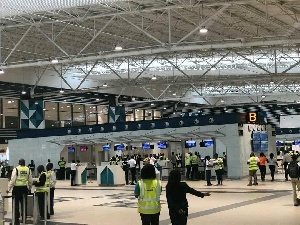The impact of the current global pandemic has had far-reaching consequences on not just the aviation and tourism sectors but on all other allied industries which are still struggling to restart their operations.
The multiplier effect of the two main sectors, in terms of job creation and contribution to the country’s Gross Domestic Product (GDP), means a restart of aviation and tourism in a safe mode is imperative.
Airlines provide the vital link between major tourist generating areas and destinations; making it a fundamental component of tourism. Conversely, research has shown that for the transport industry, there can be substantial benefits from tourism because of the additional demand which this type of travel can produce.
Aviation is an increasingly important mode of transport for tourism markets. Whilst geography has meant that, in modern times, air travel has always been the dominant mode for long-distance travel and much international tourism, it has also increased aviation’s significance for short and medium-haul tourism trips.
Globally, airlines typically pay governments US$111 billion per annum in tax revenue, but in this COVID-19 era, the sector required life support from aid totaling about US US$173 billion.
The industry is forecast to make net losses of US$118 billion this year, cutting these losses to US$38 billion in 2021, according to a recent International Air Transport Association (IATA) data.
In Ghana, the aviation sector contributes an estimated US$2.6 billion to the country’s GDP per year. Given this essential data, how does Ghana support the aviation industry to regain its 2019 levels and save the jobs of hundreds of workers in allied industries made redundant by the current pandemic.
The key ingredients:
Test & Fly
With the increasing cases of the COVID-19 in many destinations across the world, a COVID-19 testing regime rather that a strict quarantine regime has been advocated for by IATA. Ghana has a firm testing regime in place.
The antigen test conducted at the Upper Arrival Hall of the Kotoka International Airport, has made it possible for international airlines for restart operations beginning on September 1, 2020, albeit with reduced frequencies.
However, the cost of the test, which by every indication, increases the cost of travel for the average traveller by as much as US$150, is a big disincentive to a struggling industry trying to stimulate demand.
For instance, Accra-Dubai-Accra is currently selling, starting from US$550. The cost of the COVID-19 test before departure cost about GH¢400. Upon arrival—for arrivals longer than a week for Ghanaians—the travelers is expected to pay US$150 for the antigen test.
To encourage more travel, especially within Africa and to other destinations that are open, a rethink of the cost of the KIA COVID-19 test is imperative.
Aggressive promotion by airlines
January and February are typically lean months for airlines and an aggressive promotion of various destinations with special fares will serve to encourage COVID-19-fatigued travellers to consider seeing new places.
Relief by Airports Company
The country’s airports management company, Ghana Airports Company Limited (GACL), in response to the challenges faced by airlines in Q2 2020, waived rent for all airline offices at the KIA and the regional airports for the second quarter of last year.
The GACL also waived various aeronautical charges—landing, parking, and lighting—for the same period. For concessionaires operating at the KIA and all regional airports, the GACL has also waived rent and royalty payments from April-June.
For other tenants of the various airports, gift shops, restaurants, forex bureaus and others who have been severely impacted by the lack of or reduced activities, the GACL has waived rent for quarter-two.
Though the move will erode the company’s aeronautical and non-aeronautical revenue, which is an important revenue stream, the GACL, sees it as a means of supporting airlines in these difficult times; it is in itself an investment in its future income.
While that is laudable, an extension of the rent waiver and other such charges, should be waived or deferred to a later date to give operators some respite.
Business News of Friday, 8 January 2021
Source: aviationghana.com
Coronavirus: Airlines act to stimulate demand as pandemic lingers
Entertainment












